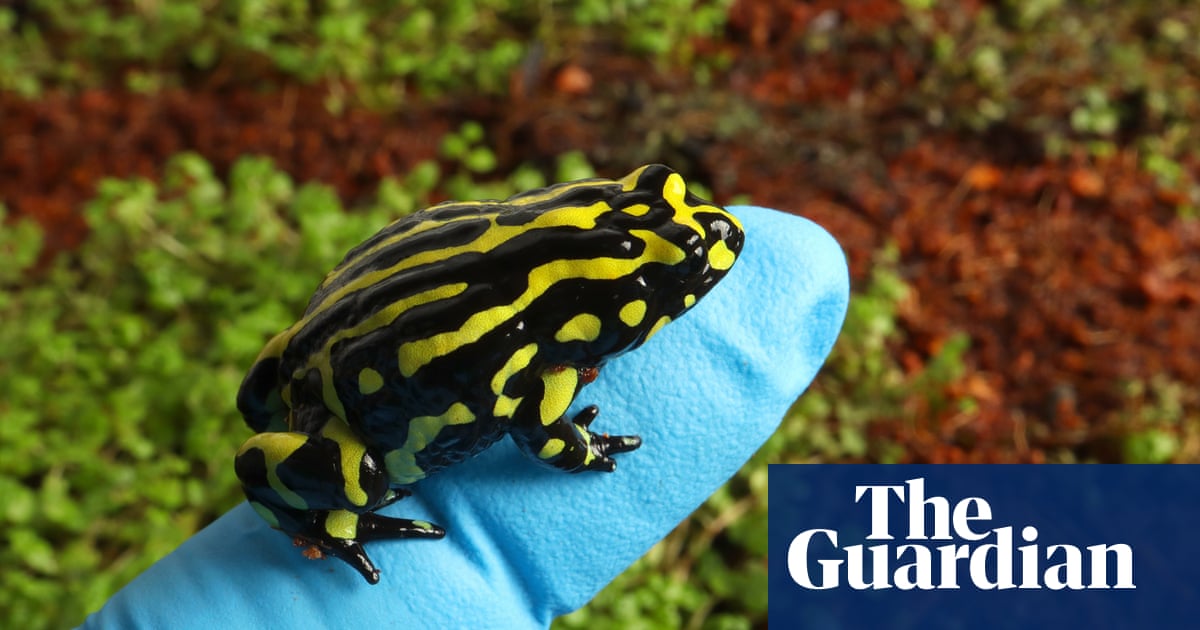
"We're still exploring what this might mean for the species, and for other amphibians."
"Their genome was equally remarkable... suggesting it indicated something unusual in their evolutionary history."
The southern corroboree frog, critically endangered and functionally extinct, has had its genome sequenced to assist recovery efforts. Unique to Australia, this striking amphibian faces threats from disease and climate change in its Kosciuszko National Park habitat. Researchers discovered its genome is surprisingly large, containing significant non-coding DNA, which may reveal insights into its evolutionary past. After a decade of research involving meticulous DNA extraction and analysis, further studies on its susceptibility to chytrid fungus and selective breeding techniques are underway to enhance conservation strategies.
Read at www.theguardian.com
Unable to calculate read time
Collection
[
|
...
]